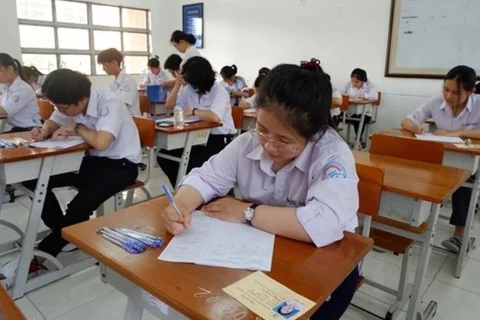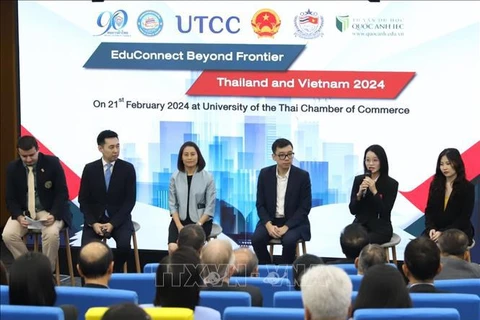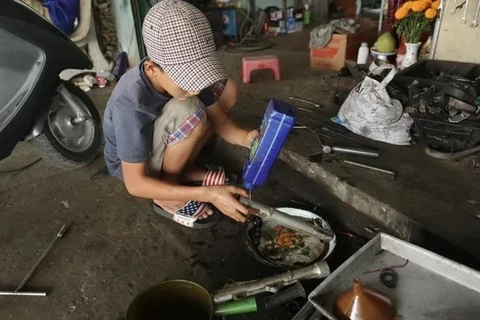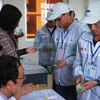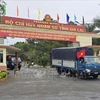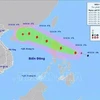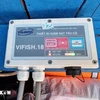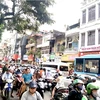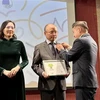 A class at the Primary and Junior High School of Hoa Binh commune in Vu Thu district, Thai Binh province (Photo: VNA)
A class at the Primary and Junior High School of Hoa Binh commune in Vu Thu district, Thai Binh province (Photo: VNA) He made the remark while talking to Vietnam News Agency about the recently released Programme for International Student Assessment (PISA) 2022 results.
The programme on the Organisation for Economic Cooperation and Development (OECD) measures 15-year-olds’ ability to use their reading, mathematics, and science knowledge and skills to meet real-life challenges. In Vietnam, the 2022 survey covered 6,068 students of 178 schools, representing about 939,500 students aged 15 nationwide.
Khanh said survey results show that students living in better socioeconomic conditions fare better in mathematics than those in disadvantaged areas, with the respective average scores of 93 points and 78 points in OECD members. This occurs in not only Vietnam but also many other countries/economies.
However, about 13% of the students with disadvantaged backgrounds in Vietnam gained high scores in mathematics, compared to the OECD average of 10%.
Aside from socioeconomic conditions, there are also other factors affecting students’ performance. Given this, the MoET has been taking comprehensive and systematic measures suitable for each region to promote equal access to education, the official said.
The PISA 2022 results show that the average score of Vietnamese students in mathematics, reading comprehension, and science ranked 34th of the 81 countries/economies in the list, and was only second to Singapore among the members of the Association of Southeast Asian Nations (ASEAN).
Vietnam stood at the 31st position among the 81 countries/economies in mathematics, 34th in reading, and 35th in science.
Among the countries sharing a similar socioeconomic status, the mathematics score of Vietnamese students was among the highest, only following Hong Kong (China), Taiwan (China), and the Republic of Korea.
The findings indicate that higher spending on education is linked with better results in PISA mathematical performance, but Vietnam is a typical example of high academic results despite limited investment in education.
Education spending for each student aged 6 - 15 was only about 13,800 USD in Vietnam but reached 75,000 USD in OECD economies. Meanwhile, the average score of Vietnamese students in mathematics was 438 points, one of the highest among the countries/territories with a similar socioeconomic status, according to the survey.
Khanh said Vietnam will continue taking part in future PISA surveys.
He added the country has applied the OECD assessment model to students. The Quality Control Department has been providing training in the PISA assessment methodology for education managers and teachers so as to reform the ways examinations are designed to further develop student capacity.
The PISA assessment techniques and methodology feature many strong points suitable for the latest general education programme, issued in 2018. The application will help improve the quality of general education as well as the Vietnamese education’s integration into the world, the official noted./.
VNA
